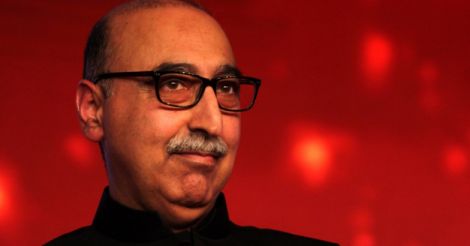The Indian diplomatic and intelligence establishment will be happy to see Pakistan high commissioner Abdul Basit returning home after a controversial three-year tenure in New Delhi.
After being twice overlooked for the post of foreign secretary by his government, Basit has sought retirement a year ahead. His tenure saw both highs and lows of bilateral relations and the plummeting of ties was blamed on his aggressive and even non-diplomatic style of functioning by both the governments.
There were moments when it appeared an exasperated Narendra Modi government might ask Basit to leave the country, triggering reciprocal action against India’s high commissioner in Islamabad. But Modi, external affairs minister Sushma Swaraj, national security adviser Ajit Doval and foreign secretary S. Jaishankar decided that there was no need to give him a higher profile.
Basit had annoyed the establishment by his aggressive statements and posturing on the Kashmir issue. The external affairs ministry thought that Basit was trying to sabotage the good intention of prime minister Nawaz Sharif and was acting at the behest of Pakistan’s ‘deep state’, which did not want relations to be normalized.
He had insisted that the Kashmir issue should be on the top of the agenda in talks between two countries, whereas there were people in the prime minister's offices of both the countries who felt it should be just one among the issues, which would come up in a comprehensive dialogue.
The relations between Modi and Sharif, who has just been unseated by the Pakistan supreme court, began on a grand note with the former inviting him and other south Asian leaders to his swearing in ceremony, which was followed by a fruitful visit of Sushma to Islamabad and then the surprise Christmas day visit to Nawaz Sharif’s home in Lahore by Modi in 2015.
But after that, the relations have been going downhill due to the terror attack in Pathankot, cross border killings and mutilation of Indian soldiers, as well as the escalated violence in Kashmir Valley.
Basit, who has a busy style of functioning, has always argued that he had thought that a strong prime minister like Modi would put aside the uncertainties of the past and come up with a bold solution. Basit had invited the leaders of the separatist Hurriyat Conference to the Pakistan High Commission just before the resumption of the foreign secretary level talks between the two countries.
Although he argued that the high commissioners in the past had also met Hurriyat leaders before important bilateral meetings, the Modi government saw Basit's action as a deliberate act of provocation and canceled the talks.
Basit then became more of a hardliner as he kept up the meetings with Hurriyat and lobbied with the ambassadors of major countries for taking up the Kashmir question. He had also regularly hinted that many of the attacks in India were manufactured by Indian agencies and it irked the military and intelligence. He also actively spoke to the media on India-Pakistan issues, putting the blame for deterioration in relations on the hard stand of the Indian government.
Interestingly, the new high commissioner Sohail Mahmood, who is Pakistan's ambassador to Turkey at present, has never been posted in India. But Mahmood has been instrumental in developing Pakistan's strong relations with Turkey and has also handled the China policy of his country. With China getting an increasing role in Pakistan's internal and foreign affairs, Mahmood's actions and utterances would be watched with keen interest.
The National Investigation Agency (NIA) has intensified its crackdown on Hurriyat leaders, arresting its president Syed Ali Shah Geelani's son in law and lawyer for channeling funds for terrorist activities. The NIA, the Intelligence Bureau (IB) and the Research and Analysis Wing (RAW) have held that funding for separatist activities comes from Pakistan, and that several staffers are actually brought in for taking care of Hurriyat and other separatist organizations.
Mahmood may not have to worry about a summit of leaders of two countries, as Pakistan is in a political turmoil after the removal of Nawaz Sharif. With a weak interim prime minister, both China and Pakistan's military bosses will have an even bigger say on the India policy.
Meanwhile, with less than two years left for India's general elections, Modi too would be cautious about offering an expansive gesture to Pakistan, given the bad experiences of 2014 and 2015.

























 Abdul Basit had annoyed the establishment by his aggressive statements and posturing on the Kashmir issue (file photo: IANS)
Abdul Basit had annoyed the establishment by his aggressive statements and posturing on the Kashmir issue (file photo: IANS)